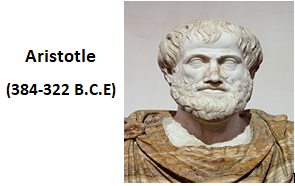
Aristotle
Aristotle (384-322 BC) was a Greek philosopher and scientist who made significant contributions to a wide range of fields, including metaphysics, ethics, politics, biology, and logic. He was a student of Plato and went on to become the tutor of Alexander the Great.
Aristotle believed that the ultimate goal of human beings is to achieve happiness, which he defined as a state of complete and virtuous activity. He argued that the best way to achieve this goal is through the cultivation of virtues, such as courage, wisdom, and justice, and the avoidance of vices, such as cowardice, ignorance, and injustice.
Aristotle also believed in the importance of logic and reason, and he developed a system of deductive reasoning that is still used today. He also made significant contributions to the study of biology, classifying animals into different categories based on their characteristics and developing the idea of a hierarchy of living things.
In addition to his philosophical and scientific work, Aristotle also wrote on politics and was a strong believer in the importance of a well-ordered society governed by laws that promote the common good. He argued that different forms of government are appropriate for different types of societies and that the best form of government is one that balances the interests of the ruling class and the common people.
It would certainly be an understatement to say that Aristotle’s work had a significant impact on the development of Western philosophy and science. This is because the ancient Greek polymath’s ideas continue to be studied and debated to this day.
























